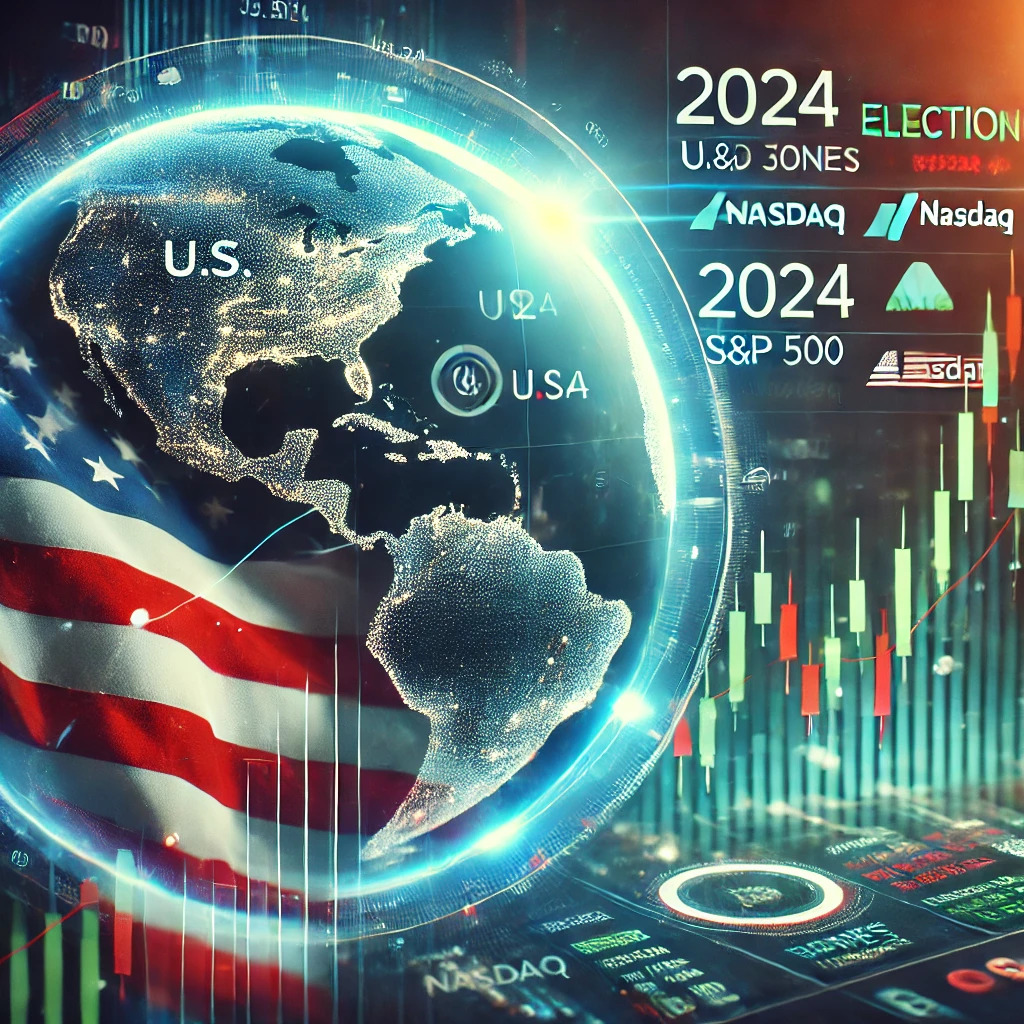
Interest Rates and Federal Reserve Policy
Another significant factor affecting U.S. stocks before the election is the stance of the Federal Reserve. While the Fed operates independently, its policies often align with broader economic needs signaled by the executive branch. Any hints about potential interest rate adjustments or shifts in the Fed’s inflation strategy can directly impact equity markets.
As the Fed considers the implications of the election and upcoming policy directions, investors may see fluctuations in the S&P 500 and Nasdaq. Lower interest rates could continue to support tech stocks, whereas an indication of rising rates may drive investments toward safer assets.
Global Impact: Central banks worldwide often respond to the U.S. Fed’s actions. Lower U.S. interest rates could lead to similar adjustments abroad, impacting global currencies, bond yields, and investor risk appetite. Additionally, changing rates in the U.S. affect dollar strength, influencing emerging markets with dollar-denominated debt.
Trade Policies and International Relations
Trade remains one of the most impactful areas where election results will determine market trajectories. Policies concerning tariffs, trade agreements, and relations with major economies like China and the European Union are pivotal to market expectations. A continuation of protectionist policies could result in trade tensions that may affect the tech-heavy Nasdaq index, while more open policies might benefit manufacturing and consumer stocks within the Dow Jones.
Global Impact: As the U.S. is a significant player in global trade, any shift in trade policies has immediate implications for global supply chains and markets. A trade-friendly approach could stabilize international markets, boosting investor confidence in export-driven economies. On the other hand, heightened tensions could lead to stock market declines globally, especially in regions heavily dependent on U.S. trade.
Sectoral Shifts and Technology Stocks
Tech stocks, which constitute a significant portion of the Nasdaq, could be particularly affected by election results, especially concerning regulations on big tech companies. Policies regarding data privacy, antitrust laws, and foreign investment may impact this high-growth sector. Investors in tech stocks will likely monitor the stance of the next administration on these issues closely.
Global Impact: Since many global investors hold positions in U.S. tech giants, any policy affecting these firms has international repercussions. Additionally, global technology sectors may mirror the trends in the Nasdaq, especially in markets like Asia that are tech-centric. Potential regulatory challenges for American tech companies could lead international investors to look for growth opportunities in other tech hubs, such as China or the EU.
Inflation Expectations and Consumer Spending
The election could bring changes to inflation expectations and consumer spending trends. Policies related to wages, healthcare, and taxation will play a role in determining consumer confidence. If policies favoring increased consumer spending are introduced, this could provide a positive outlook for stocks within the S&P 500 and Dow Jones.
Global Impact: The U.S. is one of the world’s largest consumer markets, and changes in U.S. consumer behavior impact global businesses. Increased U.S. spending could boost exports from countries supplying consumer goods to the U.S., creating a positive ripple effect for global economies reliant on American demand. Alternatively, if inflation concerns mount, this could lead to tighter monetary policies globally, impacting the borrowing costs and economic growth of other countries.
Conclusion: Global Implications of the U.S. Election
As we approach the 2024 U.S. election, the focus is not just on who will lead the country but on how different policy directions could reshape the global economic landscape. Investors across the globe should prepare for potential market volatility as major U.S. indices—S&P 500, Dow Jones, and Nasdaq—react to the election outcome. While domestic economic policies will dominate in the short term, the U.S.’s role as a global economic leader ensures that changes in its financial policies resonate worldwide.
At Totafx Capital, we continue to monitor these developments closely to provide our clients with insights and strategies to navigate potential market changes, ensuring a balanced approach to risk and opportunity in a globally interconnected financial environment.